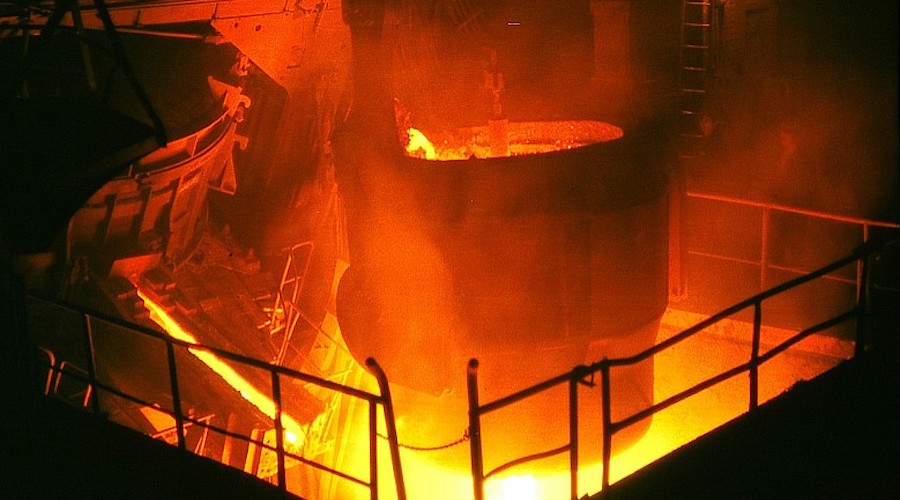Government officials call for output control at Chinese steel mills

Government officials and industrial experts in China are calling on the nation’s steel mills to restrain output, as the flooding of products in the market severely dents profit margins in the sector.
The world’s No.1 steel maker produced 149.6 million tonnes of crude steel in the first two months this year, up 9 percent from same period in 2018 and accounting for 52 percent of the world’s total, even though most steel mills closed for two weeks during the Lunar New Year in February.
“Nearly a quarter of steel companies in the country saw balance sheet falling in red in January and February,” said Liu Zhenjiang, chairman of China Iron & Steel Association at an industrial conference on Saturday.
Some steel companies, including the biggest private-owned steel maker Jiangsu Shagang, expect a steep fall in net profit in the first quarter.
Liu also acknowledged that profits were being squeezed by rising raw material prices, largely caused by production disruptions at Vale SA after its tailings dam disaster killed 300 people.
Prices of the most-active iron ore contract in China surged 26 percent since the beginning of this year.
“But that (the raw material factor) is not the main reason for falling margins…Steel mills must control their own production rhythm… in accordance with the pace of China’s economic development,” he said.
Officials from the industrial ministry, the market regulation administration and experts from the China Academy of Engineering also said that the fat profit margins enjoyed by the steel sector will not be seen in 2019 due to a supply glut and waning demand.
Beijing has already lowered the economic growth target in 2019 to 6.0-6.5 percent, from the actual rate of 6.6 percent in 2018.
Mills in northern China, however, are ready to resume some operations once the winter production restriction is removed on April 1. China has phased out more than 150 million tonnes of outdated and inefficient steel capacity in the past three years. It plans to continue eliminating excessive capacity through an environmental campaign and industrial consolidation.
Beijing will also carry out inspections across the country in 2019 to ensure that factories aren’t re-starting closed capacity and no new capacity is being launched without approvals.
(Reporting by Muyu Xu and Michael Martina Editing by Shri Navaratnam)
{{ commodity.name }}
{{ post.title }}
{{ post.date }}




Comments